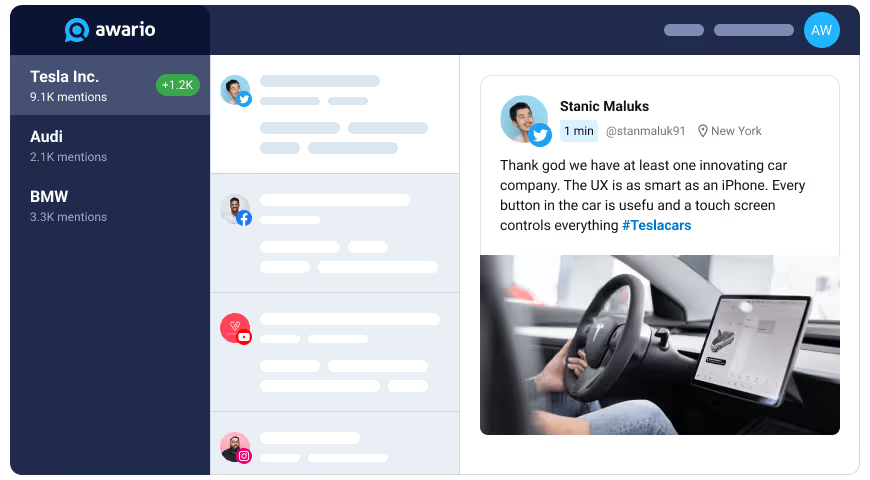
Automated Data Collection: Optimized with the Latest Cookiebot Technology

Automated Data Collection: Optimized with the Latest Cookiebot Technology
Retrieval-augmented generation
Optimize your data for generative AI
Elevate the quality of data generated by your language models with retrieval-augmented generation.

What is retrieval-augmented generation (RAG)?
Retrieval-augmented generation (RAG) is a cutting-edge Al methodology that optimizes the accuracy and quality of LLMs by connecting them to external knowledge sources.
Large language models (LLMs) have revolutionized content generation, but their responses aren’t always consistent. They’re only as dynamic and relevant as the data used to train them.
With impeccable data delivered through purpose-built AI powering your RAG technology, your LLM will dynamically pull information from a vast external text database, based on each query. This gives the model access to the most current, verifiable facts. It also allows for more nuanced and context-rich answers, which is particularly valuable in sectors that require in-depth topic knowledge.
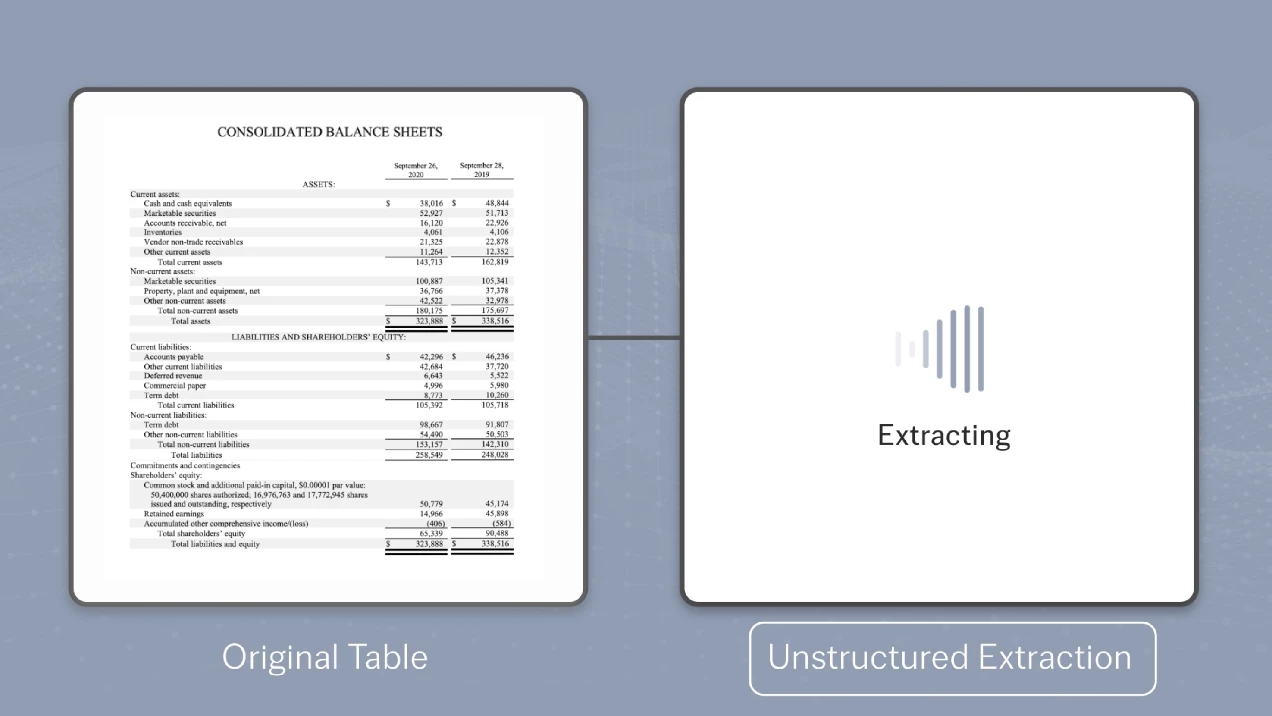

Transform hidden data into valuable insights
Today, 90% of business data is stored in formats that challenge traditional “extract, transform, load” (ETL) processing. These formats include PDF, TIFF, PNG, PPTX, or DOCX. This level of data inaccessibility hinders complete business transformation.
We leverage purpose-built AI to help you extract meaningful insights from any type of document. Vantage, our intelligent document processing platform , uses advanced AI techniques to extract, classify, and deliver data from documents. By integrating Vantage, your document data enables enriched and more relevant insights, based on a broader knowledge base for your LLM.
The power of retrieval-augmented generation
Use purpose-built AI to generate high-quality data that fuel your RAG system for successful generative Al implementations.
Accurate and relevant information
Access to current, reliable data means you’ll get relevant information in the retrieval process, elevating your output quality.
Efficient training
Train your language models by giving them access to thorough and well-annotated datasets, reducing manual training time and resources.
Reduced bias
Giving LLMs access to diverse datasets minimizes biases, promoting fairness and varied perspectives.
Enhanced contextual understanding
Quality data gives language models a deeper, nuanced knowledge base, which is vital for applications that require contextual understanding.
Article
Is Generative AI Trustworthy?

Article
NLP, LLMs, DeepML, and FastML: The AI Under the Hood of ABBYY Intelligent Document Processing

Podcast
Are Large Language Models the Future?

Article
Is Generative AI Trustworthy?

Article
NLP, LLMs, DeepML, and FastML: The AI Under the Hood of ABBYY Intelligent Document Processing

Podcast
Are Large Language Models the Future?

Article
Is Generative AI Trustworthy?

Article
NLP, LLMs, DeepML, and FastML: The AI Under the Hood of ABBYY Intelligent Document Processing

Podcast
Are Large Language Models the Future?

The perfect blend of Al
The effectiveness of RAG and similar generative Al initiatives rely on the underlying data quality. To realize the full potential of generative AI technologies, and deliver high-impact and ethically responsible outcomes, companies need to prioritize ongoing investment in acquiring, cleaning, and structuring data from their documents. This is made possible through ABBYY’s Purpose-Built AI.
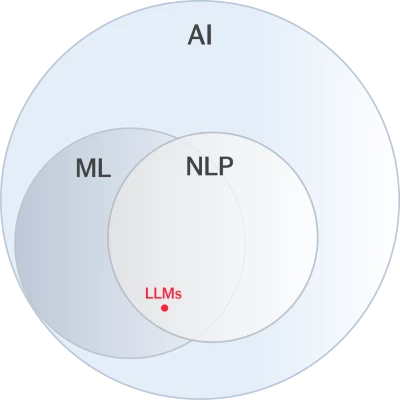
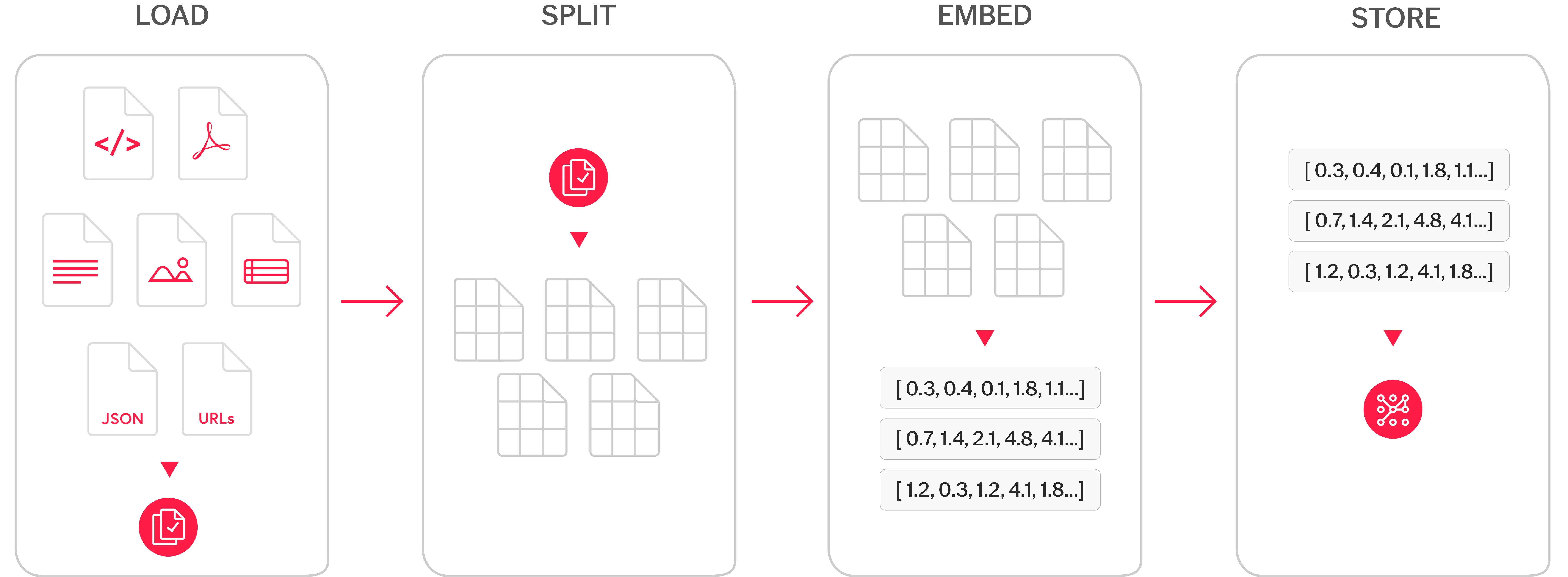
Make your data fluent in LLM
At ABBYY, we believe that data held in physical documents holds real value and useful insights when it’s used the right way.
We go beyond providing conventional document conversion services. We elevate your data, making it accessible and proficient in the intricate languages of LLMs.
Elevating conversion to transformation
We convert your documents into XML, HTML, or JSON formats. And that’s just the start of the transformation. Using our purposefully designed document models, we extract pivotal data points to provide comprehensive insights that will contribute to your business’s success.
Expertise in data extraction
We’ve developed state-of-the-art AI techniques to understand your documents, identifying and retrieving relevant data to improve decision-making and insights. From financial statements to medical records, we guarantee comprehensive data extraction.

Why ABBYY?
Streamlined integration
Get impeccably structured JSON files, arranged for easy integration with RAG and LLM systems, like LangChain. Our goal is to facilitate your seamless transition to Al-driven technologies.
Bespoke data solutions
We’re skilled in augmenting customer experiences, optimizing processes, and unearthing new insights from historical data. Our bespoke solutions ensure your data is not only prepared, but proficient in the languages of tomorrow.
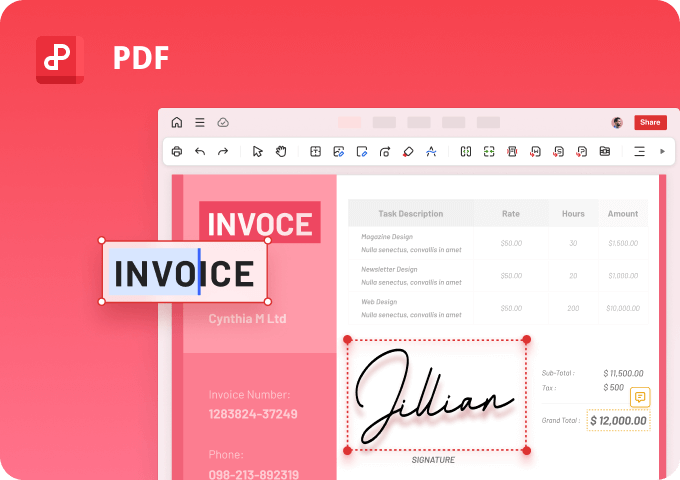
WPS Office Premium ( File Recovery, Photo Scanning, Convert PDF)–Yearly
Innovation partner
Join us on a journey to a more intelligent, interconnected future. We work with you to make the most of your data, from comprehension to delivery. The outcome is optimized data that delivers tangible value for your business.
Discover how RAG can benefit your enterprise
Financial services
Purpose-built AI processes current, real-time market data. Improving the accessibility and relevance of this information can aid financial analysts in making prompt, well-informed decisions. Purpose-built AI can also support fraud detection by analyzing transaction data and highlighting potential fraud risks.
Explore financial services solutions

Healthcare
Purpose-built AI puts a vast bank of healthcare information at medical professionals’ fingertips. Access to credible health research and case histories can support diagnoses and treatment of complex medical cases.

Education
Drawing from global teaching material can help education professionals create tailored content for their students. A personalized, student-centered approach can significantly enhance learning experiences and results.

Financial services
Purpose-built AI processes current, real-time market data. Improving the accessibility and relevance of this information can aid financial analysts in making prompt, well-informed decisions. Purpose-built AI can also support fraud detection by analyzing transaction data and highlighting potential fraud risks.
Explore financial services solutions

Healthcare
Purpose-built AI puts a vast bank of healthcare information at medical professionals’ fingertips. Access to credible health research and case histories can support diagnoses and treatment of complex medical cases.

Education
Drawing from global teaching material can help education professionals create tailored content for their students. A personalized, student-centered approach can significantly enhance learning experiences and results.

Financial services
Purpose-built AI processes current, real-time market data. Improving the accessibility and relevance of this information can aid financial analysts in making prompt, well-informed decisions. Purpose-built AI can also support fraud detection by analyzing transaction data and highlighting potential fraud risks.
Explore financial services solutions

Healthcare
Purpose-built AI puts a vast bank of healthcare information at medical professionals’ fingertips. Access to credible health research and case histories can support diagnoses and treatment of complex medical cases.

Education
Drawing from global teaching material can help education professionals create tailored content for their students. A personalized, student-centered approach can significantly enhance learning experiences and results.

How does retrieval-augmented generation work?
Users typically give a large language model (LLM) a prompt or input, and receive a response based on its training data. RAG utilizes the user input to pull information from relevant external data sources. The user input and new information are then fed into an LLM to improve response quality. This process takes place in four steps:
- Compile external data
- Retrieve relevant information
- Improve the LLM input
Compile external data
The RAG model gathers data from various external sources, such as APIs, databases, or documents. This data is converted into numerical representations for the LLM to understand.
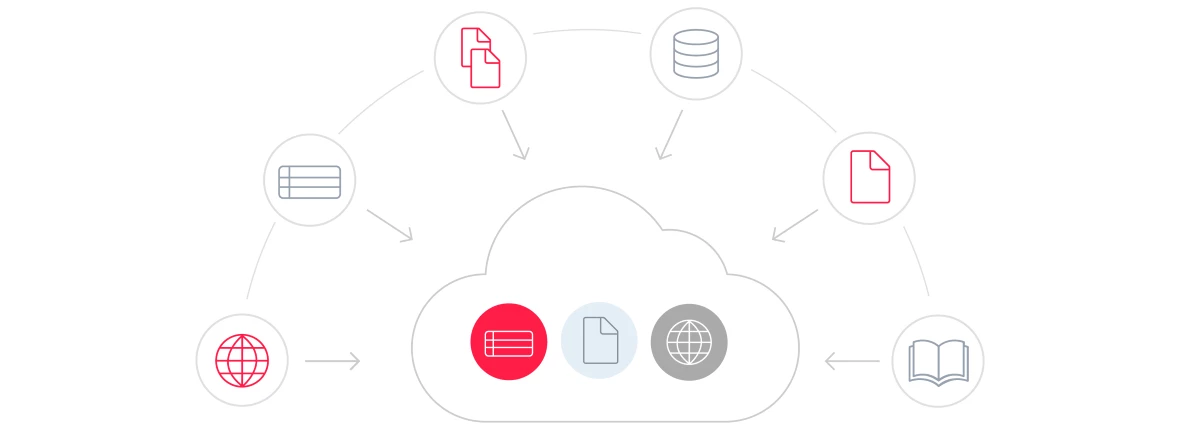
Retrieve relevant information
The user’s query is converted into a vector and compared with the vector databases to find the most relevant information. It uses mathematical vector calculations to assess the relevance of information.
Improve the LLM input
The system integrates relevant retrieved data into the user’s input to enhance LLM understanding. It uses prompt engineering techniques to ensure the generated response is clear and communicated effectively.
We secure your business everywhere, so it can thrive anywhere
We’ve developed an integrated portfolio of purpose-built AI solutions to protect your business. Our security strategy, rooted in Zero Trust principles, empowers you to overcome uncertainty and global cyberthreats.




Learn more about ABBYY
ABBYY University
Learn new skills and earn certifications to boost your career with our catalog of courses. Choose from on-demand or instructor-led courses to upskill on your own schedule.

The latest release of ABBYY’s intelligent document processing platform , Vantage, introduces a new ID reading skill. It supports classification and extraction of data from over 10,000 different document types in more than 190 countries.

AI-Pulse Podcast Tune in for episodes about AI, intelligent automation, and business.
ABBYY University
Learn new skills and earn certifications to boost your career with our catalog of courses. Choose from on-demand or instructor-led courses to upskill on your own schedule.

The latest release of ABBYY’s intelligent document processing platform , Vantage, introduces a new ID reading skill. It supports classification and extraction of data from over 10,000 different document types in more than 190 countries.

AI-Pulse Podcast Tune in for episodes about AI, intelligent automation, and business.
ABBYY University
Learn new skills and earn certifications to boost your career with our catalog of courses. Choose from on-demand or instructor-led courses to upskill on your own schedule.

The latest release of ABBYY’s intelligent document processing platform , Vantage, introduces a new ID reading skill. It supports classification and extraction of data from over 10,000 different document types in more than 190 countries.

AI-Pulse Podcast Tune in for episodes about AI, intelligent automation, and business.
Unlock your AI potential with ABBYY
With more than 35 years of experience, we’re experts in intelligent document processing . We’ve perfected the development, implementation, and innovation of advanced algorithms and machine learning models. Our singular focus is to help you turn your inaccessible data into invaluable insights.
What are the benefits of partnering with ABBYY?
We pride ourselves on offering strategic collaboration, alongside access to cutting-edge technology. We’ll equip your business with advanced tools for document processing and data analysis. This will position you as a leader in your industry and future-proof your business against new challenges.
What are ABBYY’s capabilities in document digitization?
We use intelligent document processing to transform any document into a digital asset, with high accuracy and speed. Our technology ensures text from scans, images, PDFs, and other documents are converted into readable data. This facilitates streamlined processing and accurate interpretation of information.
How does ABBYY use natural language processing (NLP)?
Our NLP technology enables us to extract meaningful and contextual information from text-based content. NLP is a crucial tool for organizing unstructured data into actionable insights. With its capabilities, you’ll be able to:
- Conduct advanced text analysis
- Evaluate sentiments
- Identify key entities
ABBYY Vantage combines NLP with RAG and other technologies such as OCR to offer comprehensive and relevant insights, beyond just document data.
Does ABBYY provide customized Al solutions?
We’re skilled in developing tailored Al solutions to address your specific business needs. Whether you’re facing new challenges or want to optimize your processes, our custom Al models are designed to empower your business.
Why is retrieval-augmented generation important?
RAG ensures LLMs retrieve information from accurate and relevant knowledge sources. LLMs are intelligent AI tools, but a crucial drawback is they may provide outdated information by drawing from static training data.
As a result, responses from conventional language generation models might be too generic or even inaccurate. RAG gives enterprises more confidence and control over generated outputs and the response generation process.
What are the benefits of retrieval-augmented generation?
There are three key benefits of RAG:
1. Relevant information
RAG provides current and reliable sources to LLMs, ensuring users receive the latest information.
2. Improved user confidence
RAG allows for source attribution, citations, and references. This increases users’ confidence in generated responses.
3. Cost-effective training
RAG is a more affordable alternative to retraining a foundation model, making generative AI technology accessible.
What’s the difference between retrieval-augmented generation and semantic search?
Retrieval-augmented generation (RAG) and semantic search offer different approaches to information retrieval and generation. RAG combines language generation models with information retrieval techniques. It finds and integrates external data into large language models (LLMs) to improve response quality. In contrast, semantic search scans extensive databases to retrieve precise information. It accurately maps queries to relevant documents and returns specific text.
In summary, RAG prioritizes response generation from retrieved data, while semantic search focuses on delivering semantically relevant passages.
How can ABBYY support my digital transformation journey?
You’ll receive ongoing support from your initial consultation and beyond. We draw on our extensive AI and machine learning knowledge to partner with you on your journey. With our partner ecosystem, designed to guide our customers through digital transformation, we can ensure smooth AI integration into your business processes.
Get your API key
First name*
Last name*
E-mail*
Phone
Company*
Add your question or describe your interest
Сountry*
СountryAfghanistanAland IslandsAlbaniaAlgeriaAmerican SamoaAndorraAngolaAnguillaAntarcticaAntigua and BarbudaArgentinaArmeniaArubaAustraliaAustriaAzerbaijanBahamasBahrainBangladeshBarbadosBelgiumBelizeBeninBermudaBhutanBoliviaBonaire, Sint Eustatius and SabaBosnia and HerzegovinaBotswanaBouvet IslandBrazilBritish Indian Ocean TerritoryBritish Virgin IslandsBrunei DarussalamBulgariaBurkina FasoBurundiCambodiaCameroonCanadaCape VerdeCayman IslandsCentral African RepublicChadChileChinaChristmas IslandCocos (Keeling) IslandsColombiaComorosCongo (Brazzaville)Congo, (Kinshasa)Cook IslandsCosta RicaCroatiaCuraçaoCyprusCzech RepublicCôte d’IvoireDenmarkDjiboutiDominicaDominican RepublicEcuadorEgyptEl SalvadorEquatorial GuineaEritreaEstoniaEthiopiaFalkland Islands (Malvinas)Faroe IslandsFijiFinlandFranceFrench GuianaFrench PolynesiaFrench Southern TerritoriesGabonGambiaGeorgiaGermanyGhanaGibraltarGreeceGreenlandGrenadaGuadeloupeGuamGuatemalaGuernseyGuineaGuinea-BissauGuyanaHaitiHeard and Mcdonald IslandsHoly See (Vatican City State)HondurasHong Kong, SAR ChinaHungaryIcelandIndiaIndonesiaIraqIrelandIsle of ManIsraelITJamaicaJapanJerseyJordanKazakhstanKenyaKiribatiKorea (South)KuwaitKyrgyzstanLao PDRLatviaLebanonLesothoLiberiaLibyaLiechtensteinLithuaniaLuxembourgMacao, SAR ChinaMacedonia, Republic ofMadagascarMalawiMalaysiaMaldivesMaliMaltaMarshall IslandsMartiniqueMauritaniaMauritiusMayotteMexicoMicronesia, Federated States ofMoldovaMonacoMongoliaMontenegroMontserratMoroccoMozambiqueMyanmarNamibiaNauruNepalNetherlandsNetherlands AntillesNew CaledoniaNew ZealandNicaraguaNigerNigeriaNiueNorfolk IslandNorthern Mariana IslandsNorwayOmanPakistanPalauPalestinian TerritoryPanamaPapua New GuineaParaguayPeruPhilippinesPitcairnPolandPortugalPuerto RicoQatarRomaniaRwandaRéunionSaint HelenaSaint Kitts and NevisSaint LuciaSaint Pierre and MiquelonSaint Vincent and GrenadinesSaint-BarthélemySaint-Martin (French part)SamoaSan MarinoSao Tome and PrincipeSaudi ArabiaSenegalSerbiaSeychellesSierra LeoneSingaporeSint Maarten (Dutch part)SlovakiaSloveniaSolomon IslandsSouth AfricaSouth Georgia and the South Sandwich IslandsSouth SudanSpainSri LankaSurinameSvalbard and Jan Mayen IslandsSwazilandSwedenSwitzerlandTaiwan, Republic of ChinaTajikistanTanzania, United Republic ofThailandTimor-LesteTogoTokelauTongaTrinidad and TobagoTunisiaTurkeyTurks and Caicos IslandsTuvaluUgandaUkraineUnited Arab EmiratesUnited KingdomUnited States of AmericaUruguayUS Minor Outlying IslandsUzbekistanVanuatuVenezuela (Bolivarian Republic)Viet NamVirgin Islands, USWallis and Futuna IslandsWestern SaharaZambiaZimbabwe
I have read and agree with the Privacy policy and the Cookie policy .*
I agree to receive email updates from ABBYY Solutions Ltd. such as news related to ABBYY Solutions Ltd. products and technologies, invitations to events and webinars, and information about whitepapers and content related to ABBYY Solutions Ltd. products and services.
I am aware that my consent could be revoked at any time by clicking the unsubscribe link inside any email received from ABBYY Solutions Ltd. or via ABBYY Data Subject Access Rights Form .
Referrer
Query string
GA Client ID
UTM Campaign Name
UTM Source
UTM Medium
UTM Content
ITM Source
Product Interest Temp
Business Scenario Temp
Page URL
Captcha Score
- Title: Automated Data Collection: Optimized with the Latest Cookiebot Technology
- Author: Robert
- Created at : 2024-08-21 17:12:25
- Updated at : 2024-08-22 17:12:25
- Link: https://techtrends.techidaily.com/automated-data-collection-optimized-with-the-latest-cookiebot-technology/
- License: This work is licensed under CC BY-NC-SA 4.0.











 vMix HD - Software based live production. vMix HD includes everything in vMix Basic HD plus 1000 inputs, Video List, 4 Overlay Channels, and 1 vMix Call
vMix HD - Software based live production. vMix HD includes everything in vMix Basic HD plus 1000 inputs, Video List, 4 Overlay Channels, and 1 vMix Call
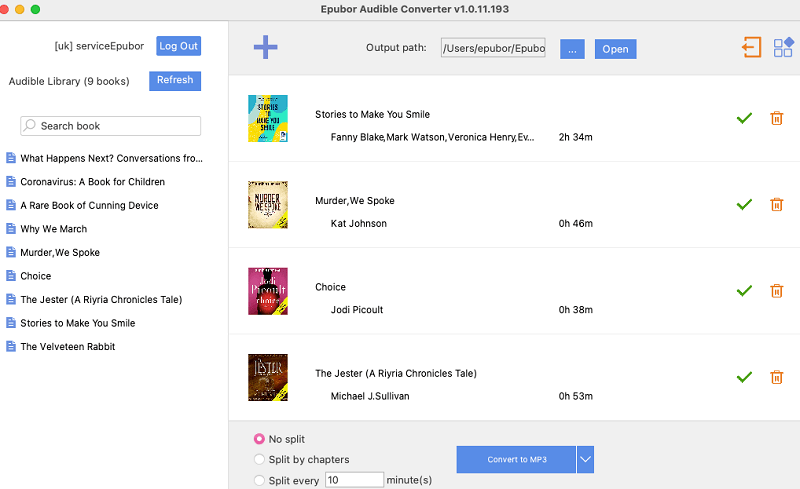 Epubor Audible Converter for Win: Download and convert Audible AAXC/AA/AAX to MP3 with 100% original quality preserved.
Epubor Audible Converter for Win: Download and convert Audible AAXC/AA/AAX to MP3 with 100% original quality preserved.

 PCDJ Karaoki is the complete professional karaoke software designed for KJs and karaoke venues. Karaoki includes an advanced automatic singer rotation list with singer history, key control, news ticker, next singers screen, a song book exporter and printer, a jukebox background music player and many other features designed so you can host karaoke shows faster and easier!
PCDJ Karaoki is the complete professional karaoke software designed for KJs and karaoke venues. Karaoki includes an advanced automatic singer rotation list with singer history, key control, news ticker, next singers screen, a song book exporter and printer, a jukebox background music player and many other features designed so you can host karaoke shows faster and easier!